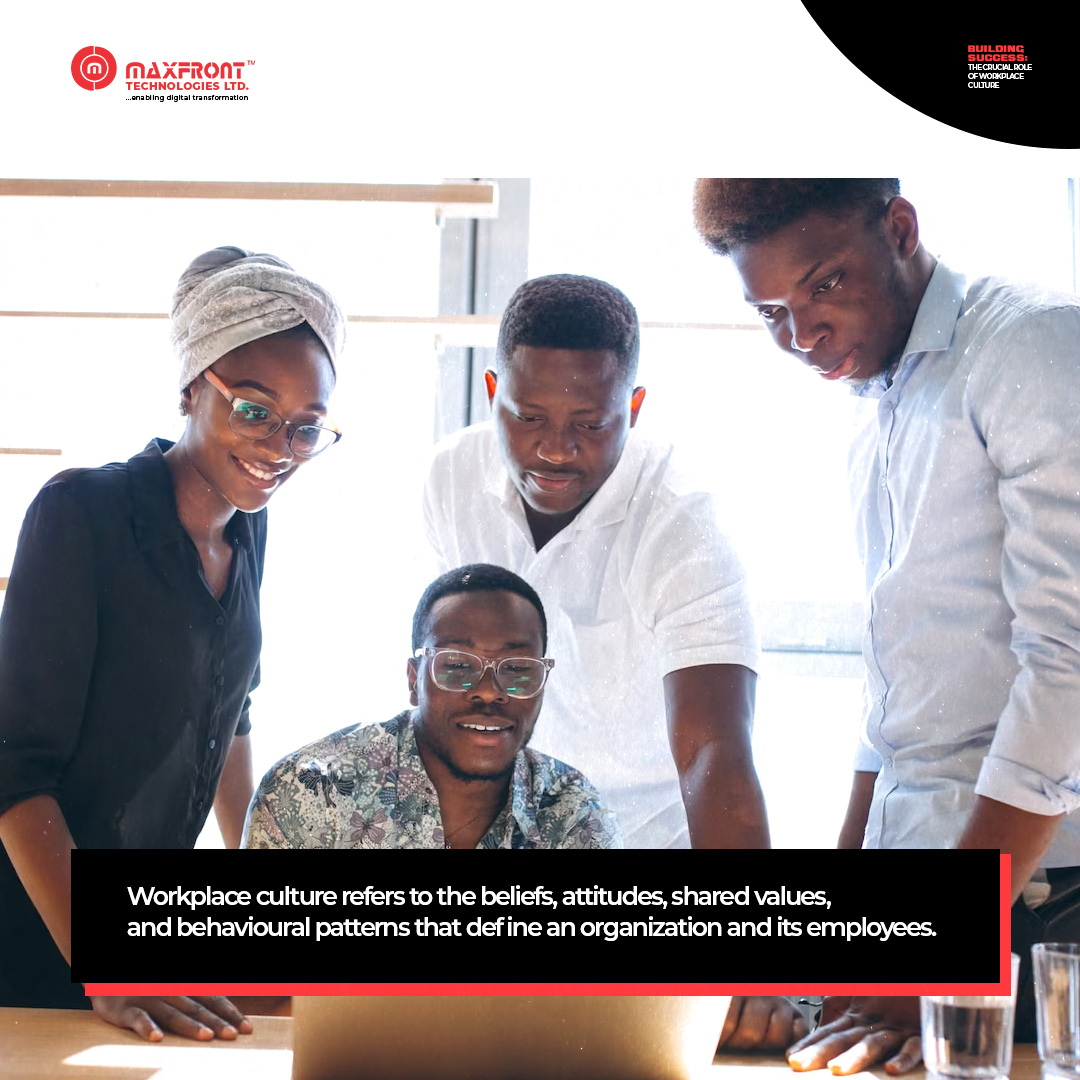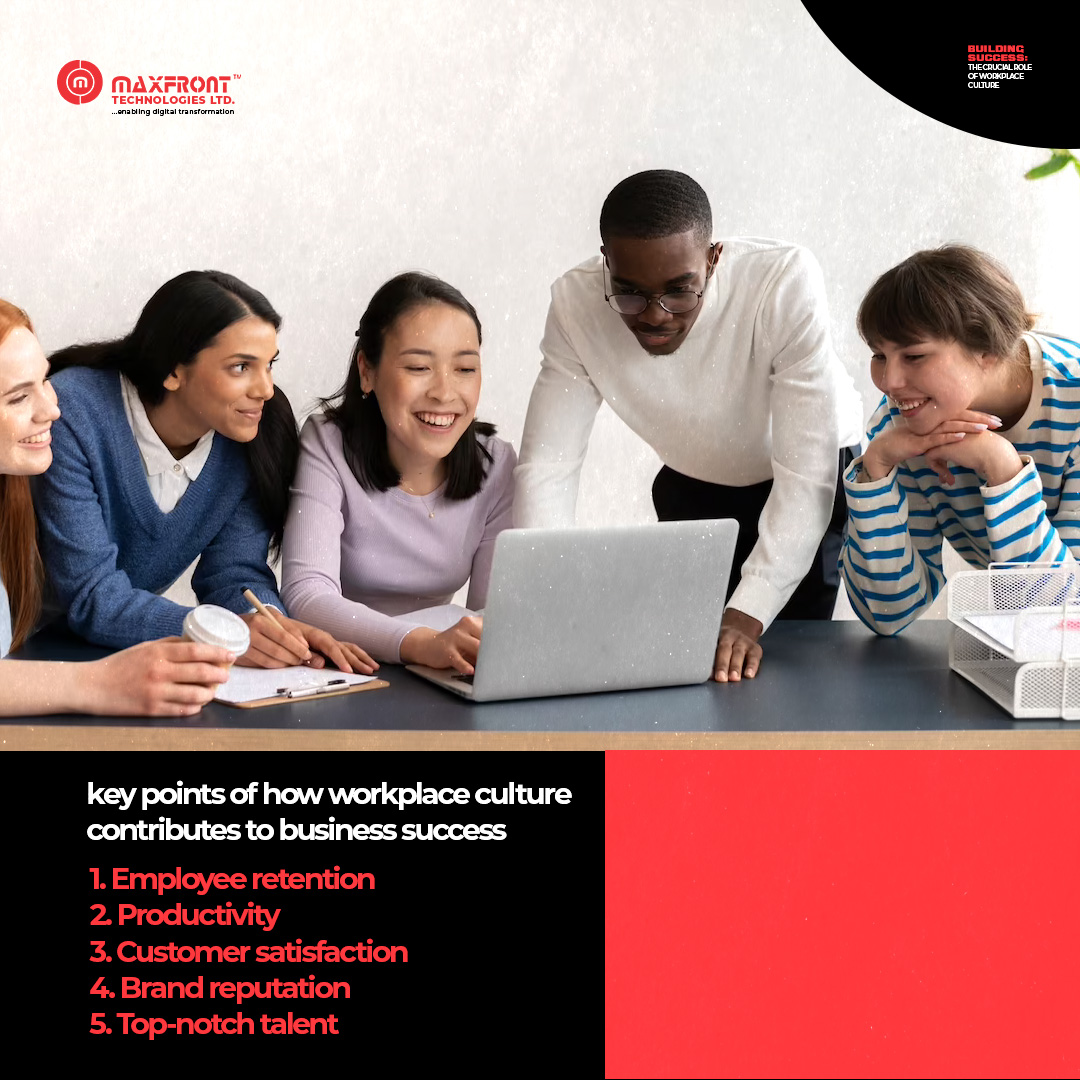
In today’s fast-paced business world, organizations must find ways to stand out and set themselves apart from competitors. While many companies focus on developing innovative products and services, one crucial factor that can set businesses apart is their workplace culture.
Workplace culture refers to the beliefs, attitudes, shared values, and behavioral patterns that define an organization and its employees. It’s the character of a company, and it influences how people interact with each other, their work, and their clients.
The importance of workplace culture cannot be overstated. It affects everything from employee retention and productivity to customer satisfaction and brand reputation. Studies have shown that companies with solid workplace cultures outperform their peers regarding revenue growth and employee engagement.
Because workplace culture is the operationalizing of an organization’s values, culture guides employee decisions on their technical needs and plans and how employees interact with others. Good culture creates internal coherence (logic and consistency) in actions taken by diverse employees.
Positive workplace culture attracts talent, drives engagement, impacts happiness and satisfaction, and affects performance. Leadership, management, workplace practices, policies, and people all influence culture
Organizations’ most prominent mistake is letting their workplace culture form naturally without defining what they want it to be.
Here are just a few key points of how workplace culture contributes to business success:

- Employee retention: Employees who feel a sense of community and belonging at work benefit from a positive workplace culture. People are more likely to stay when they feel appreciated and supported by the company for the long term, reducing turnover and associated costs.
- Productivity: A workplace culture that values teamwork, collaboration, and innovation can help to inspire employees to perform at their best. When people are motivated and engaged, they are more likely to be productive and achieve their goals.
- Customer satisfaction: A strong workplace culture can contribute to positive customer experiences. Employees who are happy and engaged are more likely to provide excellent customer service and build strong relationships with clients.
- Brand reputation: A workplace culture that reflects an organization’s values and mission can also help to build a strong brand reputation. Customers and stakeholders are likelier to trust and support companies committed to ethical and responsible business practices.
- Top-notch talent: Job candidates evaluate your organization and its climate. A strong, positive, clearly defined and well-communicated culture attracts talent that fits.
Some examples of the values that companies often prioritize:
- Respect and fairness
- Trust and integrity
- Growth mindset
- Teamwork
- Employee engagement and opportunities for advancement
- Communication and transparency
- Diversity
- Results
How do you build a culture in the workplace?
Best Practices for an Engaging Work Culture
Creating an engaging work culture is essential to attract and retain top talent, increasing productivity, and fostering a positive working environment. Best practices include:
- clear communication,
- recognition and appreciation,
- teamwork and collaboration,
- opportunities for growth and development,
- flexibility,
- work-life balance,
- and lead by example.
By implementing these best practices, your organization can create a positive and engaging work culture that fosters employee satisfaction, productivity, and overall success.
Creating a solid workplace culture takes time and effort, but the rewards are well worth it. It starts with leadership, who must embody the organization’s values and set the tone for the rest of the team. It also involves fostering open communication, providing opportunities for growth and development, and rewarding employee contributions.
In conclusion, workplace culture is crucial to building a successful business. Your organization can attract and retain top talent, boost productivity, deliver exceptional customer experiences, and build a strong brand reputation by creating a positive, supportive, and collaborative environment.